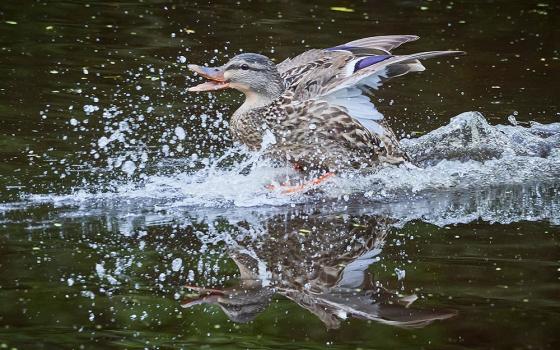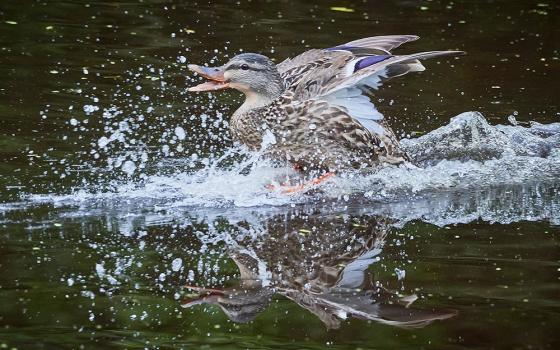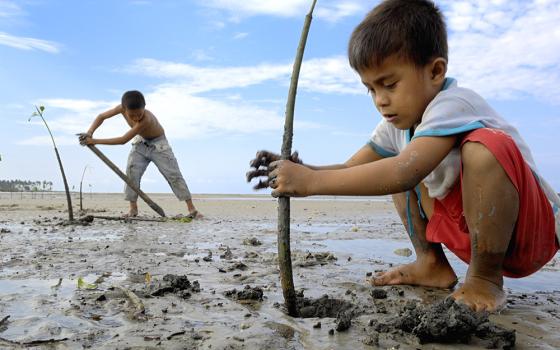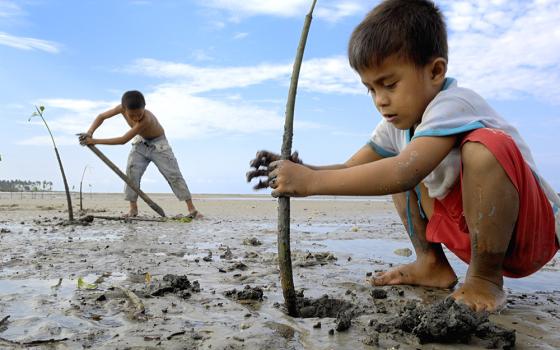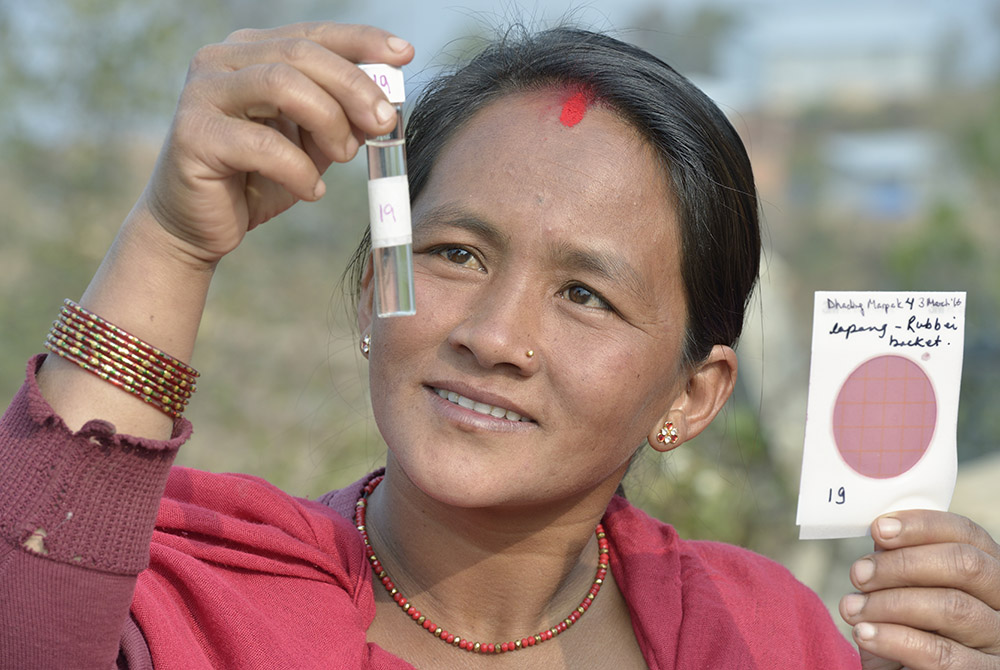
A woman in Nepal examines a water sample from her community's water supply. (Paul Jeffrey)
Editor's note: This Season of Creation, join award-winning photographer Paul Jeffrey for "Lens on Creation" as he examines the world through the lens of his camera and his faith. Sign up here to receive Jeffrey's reflections in your inbox every Monday, Wednesday and Friday from Aug. 31 to Oct. 4.
I've never seen people get so excited about finding E. coli bacteria in their water as the women of Marpak, Nepal. Like many poor women around the world, they and their daughters spend an inordinate amount of time fetching water for their families. Yet the water in their village was obviously contaminated, and they wanted to know why.
I went to Marpak with a missionary who helps women take control of their water supply. Using simple technology, she helped them collect and analyze water from local springs and household storage systems. Together they identified problems, which the women then organized to solve.
The women of Marpak are healing the planet so that they and their neighbors can enjoy the abundant life promised to them in the Gospels. No longer passive consumers of contaminated water, they have become relentless advocates for water that is clean and safe.
Our planet has a limited amount of potable water, yet in many places we've been bad stewards, contaminating it with misuse of agricultural chemicals, unchecked industrial pollution, dangerous mining waste or careless hygiene. By cutting down forests, we've diminished the Earth's capacity to store fresh water. Too often, we simply haven't appreciated safe water until it ran out. Or until corporations started selling it to us at a huge profit. This becomes even more critical as the climate crisis shifts weather patterns, leaving entire regions of poor people with less access to life-giving water.
In "Laudato Si', on Care for Our Common Home," Pope Francis reminds us that "access to safe drinkable water is a basic and universal human right, since it is essential to human survival and, as such, is a condition for the exercise of other human rights."
We cannot live without water, nor can our siblings around the planet. Our stewardship of God's creation must protect and expand the availability of safe water for all.
For reflection and action:
Where do we get our water? Is the water that comes from our faucets safe to drink? What goes on behind the scenes to make that happen? Does everyone in our community have good drinking water? How have corporations taken over parts of our water supply? How can we be better stewards of water?
[Paul Jeffrey is a founder of Life on Earth Pictures and lives in Oregon. You can follow him on Instagram.]
Advertisement



